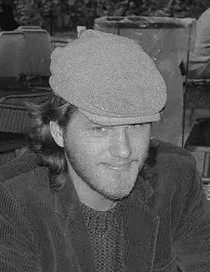We were all on the bandwagon of The Plastic People of the Universe

Stáhnout obrázek
Leoš Duda was born in Gottwaldov on 20 August 1964 to mother Anna Dudová, née Řezníčková, and father Antonín Duda. Both came from Svárov, a village in between Zlín and Uherské Hradiště, from peasant families. The father‘s family had lost their property during collectivisation. Leoš Duda played ice hockey from the age of six and practiced every day in his childhood. In the sixth grade, he entered a sports school. He began to take interest in music, attending record fairs at age twelve. He never loved the regime and none of his family was in the Communist Party. He trained as an auto mechanic, gave up hockey during his apprenticeship and started playing the clarinet. In 1981 he and his classmate Pavel Knap formed the band K-pank, with which they soon performed at illegal events. He joined the Gottwaldov dissent movement in the latter half of the 1980s and his main activities included the distribution of samizdat. He got married in 1986 and with his wife Alena, née Přibylová, they raised two children. He took part in many anti-regime actions, signed petitions for the release of political prisoners, and in 1987 signed Charter 77. In the same year, he founded the SPUSA organization with other Gottwaldov dissidents. Over time, he worked at ČSAD, Gottwaldov Film Studio, DRUEXPO (cooperative exposition), and then he trained as a shoemaking machine repairer. Following 1989, he worked in Germany, and founded his own shoe company Leon Shoes in 1998. He suspended his business for a while due to health problems. In 2024, at the time of filming, he was living in Zlín, still involved in music, playing the clarinet with Kochta Band. He received the award for the participants in the Third Resistance for his anti-regime activities.













